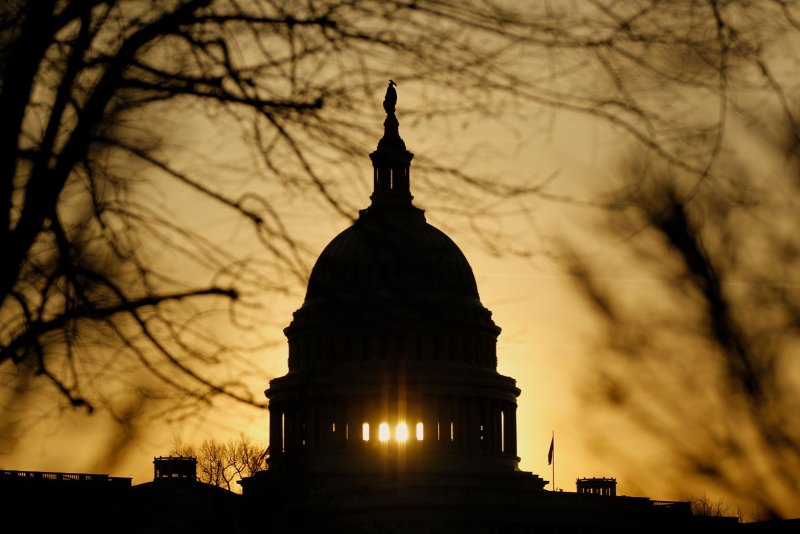The sun rises behind the U.S. Capitol in Washington DC, December 31, 2012. UPI/Molly Riley |
License Photo
WASHINGTON, March 7 (UPI) -- It's that time of year again: The day we love to hate, when most of us lose an hour of sleep as we "spring forward" into daylight saving time.
At 2 a.m. local time Sunday, time will jump ahead an hour, with the goal of giving everyone an extra hour of evening light (and saving a little energy) until November 2.
The practice, standardized in the U.S. in 1966, isn't observed by every state and territory. Most of Arizona sits out DST, as does Hawaii, Puerto Rico, the Virgin Islands, American Samoa, Guam and the Northern Marianas.
But not everyone takes their loss of sleep lying down: According to Tufts University Michael Downing, author of Spring Forward: The Annual Madness of Daylight Saving Time, as many as 30 bills pop up in state legislatures each year trying to do away with the annual time bump.
"This year I think the Kentucky/Tennessee situation is particularly interesting," Downing said. "Each state has two time zones, which adds to the complications, but if their two proposals went through their independent legislatures, Tennessee would be on permanent DST while Kentucky would be on permanent standard time."
{q:"That would mean -- and this is ridiculous but true -- cities in Tennessee's eastern time zone and Kentucky's central time zone that are only 5 or 10 miles apart would have two-hour time differences."
Internationally, DST is observed in most of North America and Europe, but not in many African and Asian nations. But in Japan, a nation enduring an energy crunch as it continues to try to deal with the limping Fukushima nuclear cleanup, some politicians are advocating for bringing back the practice for the first time in 60 years.
As to whether the extra hour of sunlight really makes a difference in our lives, researchers can't seem to agree.
University of Washington environmental economist Hendrik Wolff says the shift means people are more active.
"In a nationwide American time-use study, we're clearly seeing that, at the time of daylight saving time extension in the spring, television watching is substantially reduced and outdoor behaviors like jogging, walking, or going to the park are substantially increased," Wolff said. "That's remarkable, because of course the total amount of daylight in a given day is the same."
But Till Roenneberg, a chronobiologist at Ludwig-Maximilians University in Munich, Germany, says our bodies never really adjust to the jolt to our circadian body clocks.
"The consequence of that is that the majority of the population has drastically decreased productivity, decreased quality of life, increasing susceptibility to illness, and is just plain tired," Roenneberg said.
[National Geographic]















